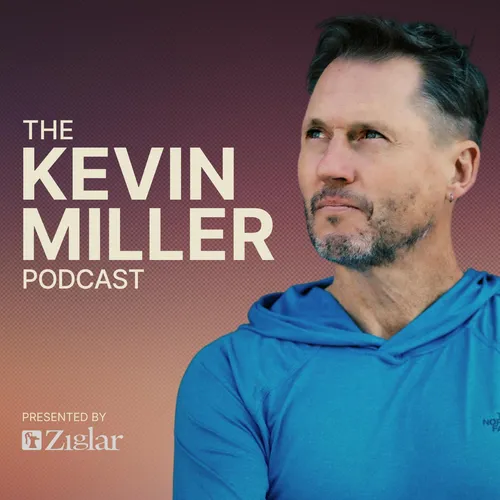Fawning: Our Appeasing & “Protecting” Others Is Hurting Us All w/ Dr. Ingrid Clayton
- Author
- Kevin Miller | YAP Media
- Published
- Mon 08 Sep 2025
- Episode Link
- None
We all have a primary pattern of dealing with relational conflict. There are a scant few, in my experience, who do it with health and peace. The rest tend to fall into what psychologists have labeled, Fight, Flight, or Freeze tendencies. I’m not a fighter, and viewed myself as generally freezing in the moment of conflict, masked by thinking I was just being cool and calm, waiting for it to just end so I could take flight and remove myself. I thought I was valiant for my lack of fighting. Righteous and unshakable. And I thought I was protecting everyone, myself included. I did whatever it took to, choose your word: appease, placate, tolerate, or put up with. What I realize now is I was just being dishonest to myself and everyone, and while I thought I was being strong, I now view it as being incredibly weak. Again, dishonest. And what was really happening is I grew bitter and was slowly building walls with each brick of appeasing. The new term for this and what I now relate to, is Fawning. And this is the podcast today. I sat down with Dr. Ingrid Clayton who is a licensed clinical psychologist with a master’s in transpersonal psychology and a Ph.D. in clinical psychology. She’s had a thriving private practice for more than sixteen years and is a regular contributor to Psychology Today, where her blog “Emotional Sobriety” has had more than a million views. She has now come out with the first ever, commercial book on this concept of fawning, it’s titled, FAWNING: Why the Need to Please Makes Us Lose Ourselves—and How to Find our Way Back. Fawning is a hallmark of codependency, and often occurs when we can’t fight or flee because we have to remain in relationship with the person or situation we are struggling with. It is highly relevant to why we stay in bad jobs, fall into unhealthy partnerships, and tolerate dysfunctional environments, even when it seems obvious to others we should go or take drastic steps to try and correct things. Ingrid says fawning can serve a purpose as an emergency adaptive strategy that protects us from losing connection with people we depend on, but it becomes a real problem when it turns from the emergency coping mechanism to compulsory in our day to day lives. The good news of course is we can break the pattern of chronic fawning once we see the trauma response for what it is. I was incredibly excited to talk with Ingrid and this conversation proved invaluable for me. I hope it will be for you as well, as my feeling is that most of us suffer from aspects of fawning in certain relationships and circumstances in our lives. Connect with Ingrid on IG @ingridclaytonphd and find the new book Fawning that is hitting bookstores now. Coming up next, my conversation with Dr Ingrid Clayton on the pervasiveness of Fawning and how to get out of this insidious trauma response.
Sign up for your $1/month trial period at shopify.com/kevin
Go to shipstation.com and use code KEVIN to start your free trial
Learn more about your ad choices. Visit megaphone.fm/adchoices
